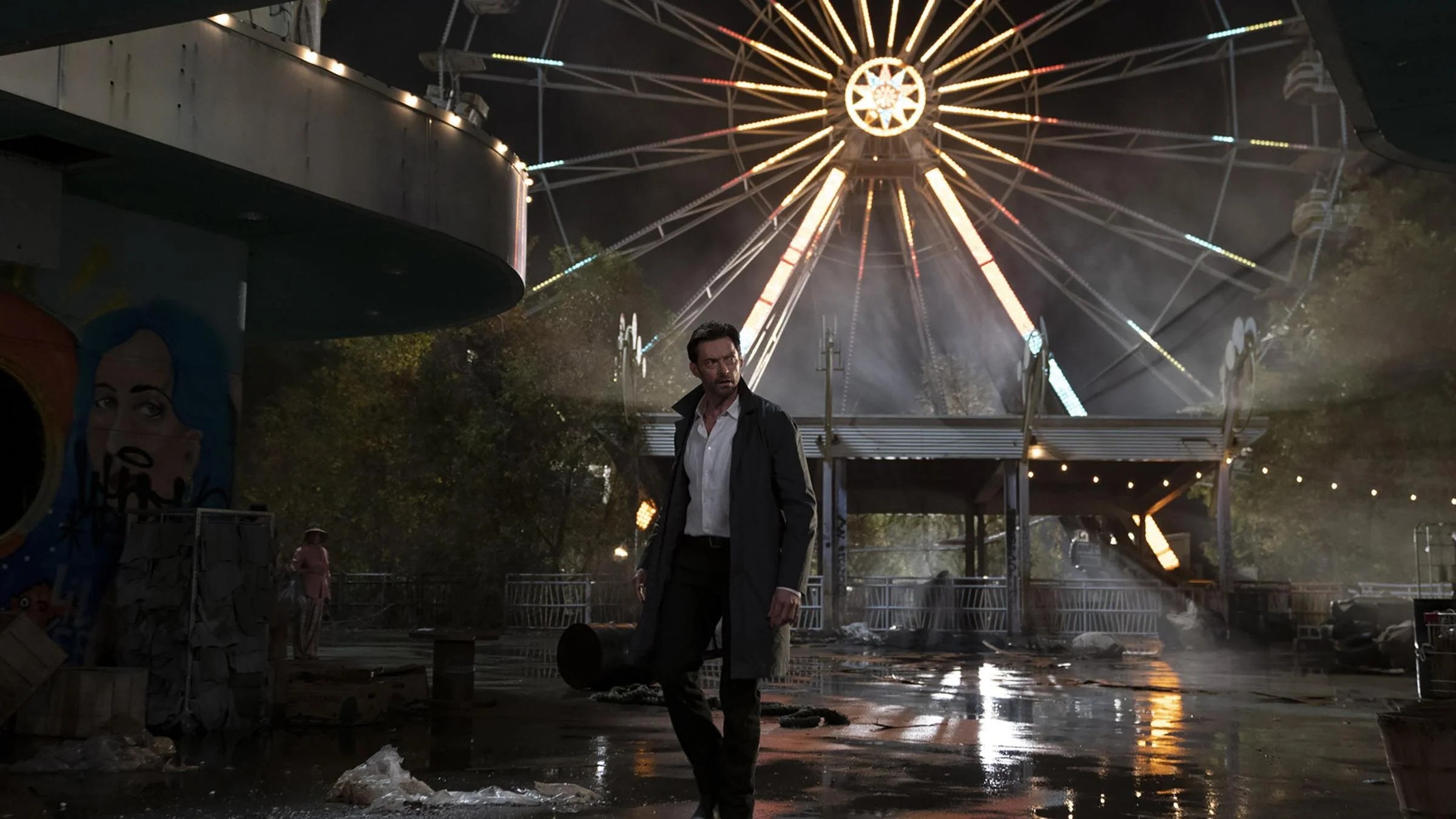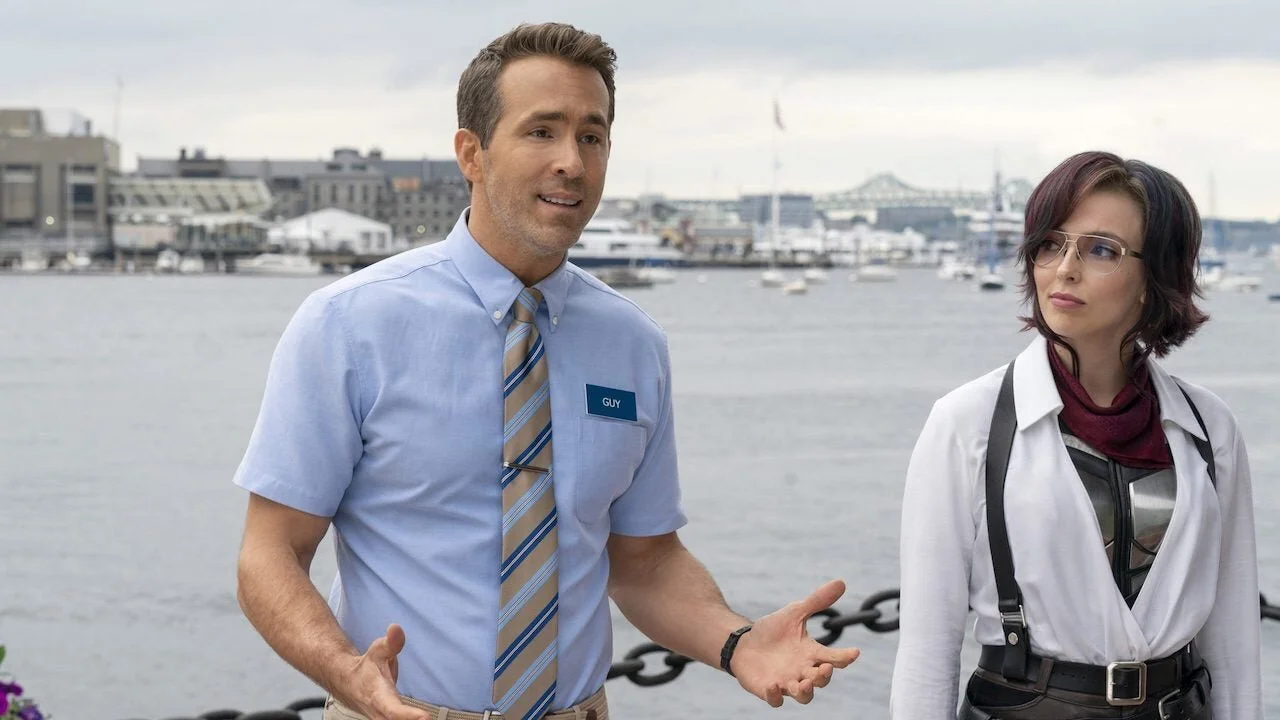Reminiscence
Bruce Steele: The new Hugh Jackman movie Reminiscence is written and directed by first-timer Lisa Joy, who was a writer on the charming cult-hit TV series Pushing Daisies and on HBO's blustery Westworld. Does her first feature tend more toward charm or bluster?
Edwin Arnaudin: I only saw bluster and have to think that the central cast signed on merely after hearing the film's intriguing concept of harried citizens reliving favorite memories to escape the depressions brought on by a flooded Earth. For all its tropes, forehead-slapping dialogue, and ham-fisted narration courtesy of Miami-based nostalgia dealer Nick Bannister (Jackman) as he figures out why femme fatale Mae (Rebecca Ferguson) disappeared from his life, the actual script might as well have been titled Cliché City. Did it fare any better for you?
Bruce: Not really. As we screened the film on HBO Max, we started cataloging the better movies Reminiscence aspired to imitate. Of course, it’s mostly going for a film noir vibe, with club singer Mae warbling the 1937 standard “Where or When?” into an unlikely Depression-era microphone. The 1930s homage worked for Blade Runner, the dystopian near-future noir this film most aspires to, but Ridley Scott’s film had a memorably existential villain and a gritty, richly imagined milieu. There’s nothing believable about Joy’s watery CG Miami, with its bright neon signs and lack of mildew, and Nick’s antagonists are all stick figures. Did any characters peak your interest?
Edwin: Ferguson’s Mae did at first — at least until she started singing, which gave me a bad case of The Greatest Showman PTSD. (If she and Jackman make another movie together, I’m bringing a bag of old tomatoes to the theater.) There’s also some intrigue to Nick’s colleague Emily “Watts” Sanders (Thandiwe Newton), a fellow veteran of an ambiguously defined war who carries baggage that might be compelling if Joy had half a clue how to unpack it. Pretty much everyone else flexes their ridiculousness within their first poorly written lines — especially cartoonish New Orleans crime boss Saint Joe (Daniel Wu, Tomb Raider) — likely a result of the director's inexperience guiding performances. It also feels like a major step back from Jackman after his arguable career-best work last year in Bad Education.
Bruce: That about sums it up. Newton makes Watts the most credibly human character onscreen, but her truncated story is disconnected from the main plot line. The movie is all cool concept — reliving old memories is the new addiction — and stupendous visuals, but with an indifferent mystery barely holding it together. The emotional lives of characters are designated rather than earned, particularly Nick’s unconvincing obsession with the Mae. That gap, along with the arch, overwritten dialogue — “forehead-slapping,” as you put it — leaves Jackman stranded in an off-putting ennui that no actor could escape.
The one time I was impressed with Joy’s direction was in a surprisingly thrilling action sequence in Saint Joe’s New Orleans lair. She did learn something from her years on Westworld. Unfortunately, she also brings along that series’ self-importance and indifference to coherence. I’m still game to see what Joy directs next, but not if she writes it. Her grade this time out is a D.
Edwin: I’m with you on putting Joy in the screenwriting penalty box. Everything here gets spelled out, mostly by Nick in a dumbfounding stretch while he digs through the memories of ex-cop Cyrus Boothe (Cliff Curtis, slumming it). But, as you also note, there’s some occasional visual promise, be it a train running on tracks just barely above water or the ghostly visions from the reminiscence machines. I just wish it was in the service of a story that had an ounce of interest in developing one of its many barely-sketched themes. Instead, I’m in full agreement on it being a D-grade effort.
Overall grade: D. Rated R. Now playing at the AMC River Hills, Carolina Cinemark, and Regal Biltmore Grande. Also streaming, for a limited time, on HBO Max.
(Photo: Warner Bros.)




